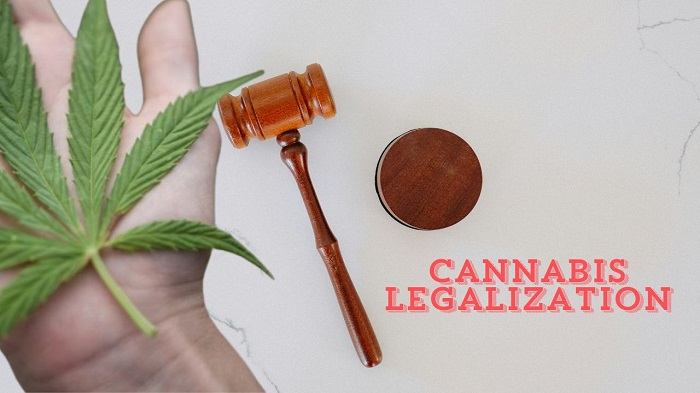The legalization of cannabis across the globe is an issue that is highly debated. Many countries have changed their policies as they reconsider their views on the substance. It is worth mentioning, however, that cannabis legalization is a current reality in several developed nations such as Canada, the United States and some European countries. Still, more so the idea of legalization is beginning to attract the attention of various developing countries. With respect to the Asian countries contemplating the legalization of cannabis, there are converging forces related to the economy, society, and the law. This article is dedicated to analyzing how the different countries’ points of view on cannabis are evolving and how this difference could affect their future.
Opportunities for E-Commerce
In the case of cannabis legalization getting to the next level, the e-commerce sector plays the most crucial role. In fact, the possibility to buy lemon haze online not only broadens the horizon for trade and commerce but also the revenue for people and communities supporting the trade. This additional step of controlled e-commerce allows consumers to get superior goods without fear and comfort. For the underdeveloped world, an electric commerce platform boosts the cannabis industry and allows investors and entrepreneurs to reach a globally broad audience.
Economic Opportunities
Apart from the case of the economic growth, the legalization of marijuana in developing countries is the main drive. Legalizing cannabis leads to new jobs being authorised, such as cultivation and processing to distribution and retail. This sector can be a source of considerable taxation for governments that can commit to savings in public sector services or infrastructures.
One good example that can be withdrawn is countries that have a long history of cannabis cultivation, like Morocco and Jamaica. There is no doubt that they can carve a niche in the sector using their existing wisdom and knowledge in the field. Such nations could perhaps become heavyweights given their decision to go legal with the drug.
Addressing Social Issues
Many justice systems in developing countries have already faced the problems caused by cannabis criminalization, like the increased prison populations and the stretched state budget. Legalizing marijuana can help in the reduction of strain on law enforcement and judiciary by curbing marijuana-related discrimination.
Furthermore, the legalization of marijuana may lead to rectifying social disparities as well. Traditionally, underprivileged communities have experienced a great deal of unfair effects from weed-related encounters and convictions. By legalizing this item, governments can also start to level this inequality and make social equity a priority.
Regulation and the Health Line
While some countries may see cannabis legalization as a means to gain benefits, at the same time, they ought to establish robust regulatory mechanisms. A part of regulation constitution platforms requires determinations of issues like quality control, product safety and age limits. Through the realization of stringent restrictions, governments may be able to preserve public health and limit environmental risks that can arise when using cannabis.
Education and information campaigns, for one, are not to be undermined when society is made aware of the possible pros and cons of cannabis consumption. Developing nations can draw on the experiences of other countries to inform the pillars of their policies that will strive to promote the usability of resources while safeguarding the environment.
Trade and Relations at the International Level
With increased numbers of countries considering legalizing cannabis, trade opportunities could potentially arise at the international level as well. This would be a great opportunity for countries that used to have a cannabis cultivation tradition to export cannabis products to other markets whose legality had already been approved.
On the other side, international trade may be intricate, mainly because of the different legal statuses and regulations not conforming to each invidious country. Among the difficulties the developing countries have to face, in addition to the abidance by the international laws and accords.
Challenges in Legalization
Proceeding to legalize cannabis is not going to be easy. Although there are lots of pros, there are also obstacles. These challenges include:
- Cultural and Political Resistance: In some developing countries, cannabis is still considered a golden calf that should not be whispered about because of cultural and religious factors. However, overcoming this resistance may be a work in progress and also needs some additional effort in order to alter public minds.
- Legal and Regulatory Hurdles: Formulating a legal and regulatory framework that can successfully regulate cannabis can be a problematic undertaking. Emerging nations may have to put a lot of effort and resources into developing the essential framework and establishment of new groups of experts.
- Risk of Exploitation: In that case, the aspect of huge multinational firms getting control of the market for cannabis may lead to canceling out little local farmers and producers. The measures that developing countries are to take should focus on the following: protecting their domestic industries and enforcing fair competition.
- Balancing Control and Freedom: Governments, indeed, must be very careful when regulating the cannabis industry so as not to become a killer of the very budding plant. Oversupply of rules can fuel obstruction of growth and introduction of innovation in business, while insufficient regulation can become the ground for public health and safety issues.
Conclusion
The regulation process of marijuana raises both opportunities and challenges for developing countries. Through the cautious approach that allows the identification of drawbacks and merits, emerging markets can create policies that maintain the development of the economy, social justice, and healthcare.
As the intricacy of marijuana legalization tends to be different in each country, emerging nations should leverage the experiences of other countries and include modifying techniques appropriate for their culture, politics, and economy. With smart planning and consideration, the poorest countries can grasp the possibilities for the people and the economy that are involved in the legalization of cannabis.




